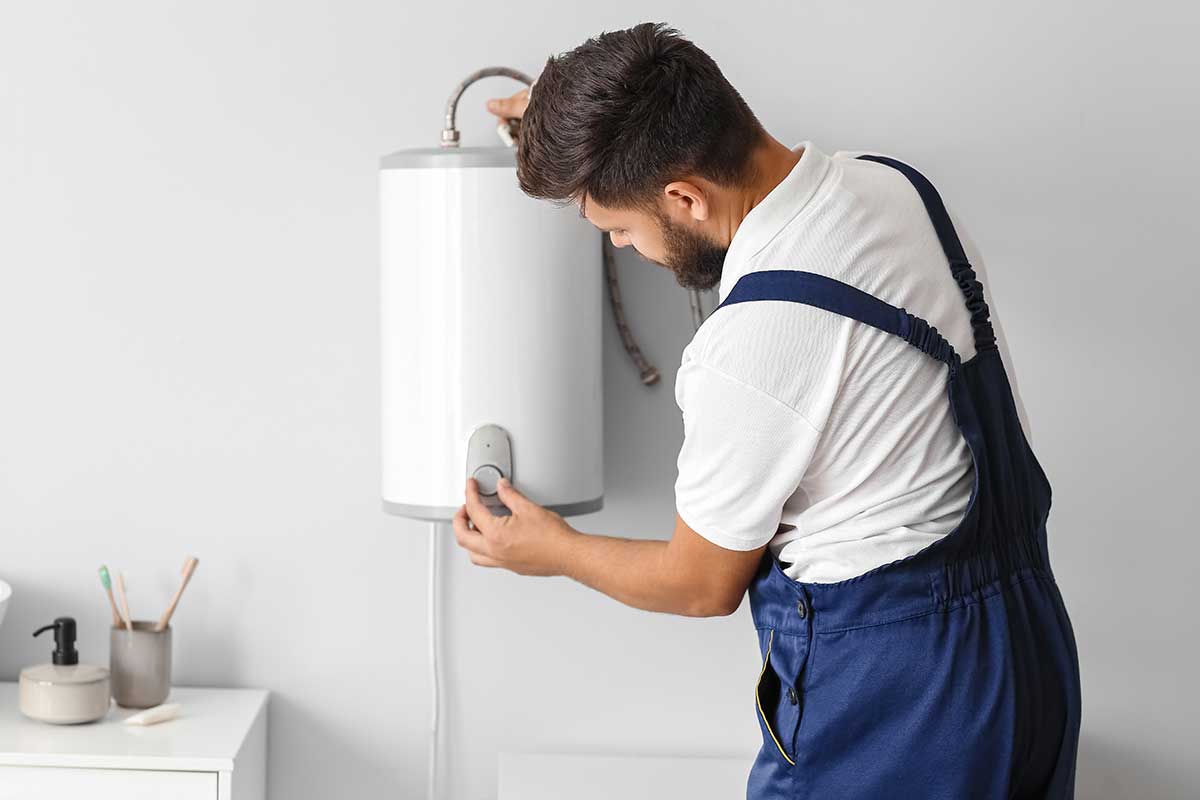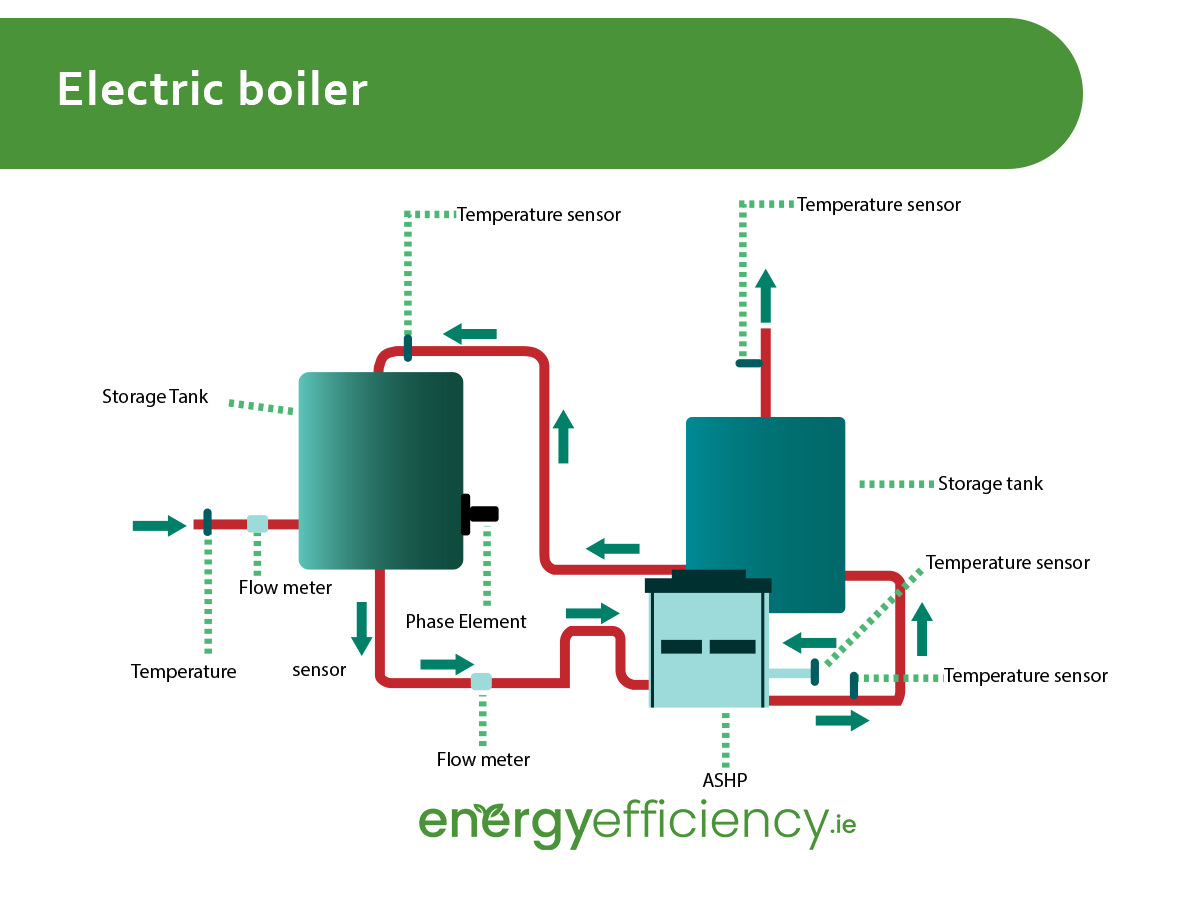With similar installation and maintenance costs as their gas counterparts, electric boilers can be a great choice for Irish households looking to cut down on their carbon footprint.
Homeowners across Ireland are upgrading their homes to make them more energy efficient, turning to renewable forms of energy to replace fossil fuels.
While electric boilers might not be for everyone, what cannot be argued is that they are much more environmentally friendly, especially with electricity companies which provide 100% renewable energy.
For those thinking of installing an electric boiler in Ireland, we’ve got you covered with everything you need to know before making the decision.

Table of Content
What is an electric boiler?
Although they are less common in Irish households, electric boilers work in much the same way as gas boilers, using electricity instead of natural gas or oil for a home’s central heating system.
They work by heating cold water by way of electricity.
Simply put, an electrical current heats the heating element inside the electric boiler, which results in heat being transferred to cold water when it passes over – kind of like a huge kettle!
As is the case with gas boilers, the way in which they work will depend on the specific type of boiler you decide to install.

Types of Electric Boilers
There are three types of electric boilers which you can choose from, and each one works in different ways, and each with their own set of pros and cons. As is the case with gas and oil, there are combi boilers, standard boilers and system boilers.
Combi Electric Boilers
Key points:
Combination or combi electric boilers are an upgrade on traditional heating systems. Combi boilers are now more common than standard or system boilers in Ireland.
Possibly the biggest difference between standard boilers and combi boilers is that the latter doesn’t require a separate hot water tank, instead heating water directly from the mains on demand.
They are highly energy efficient compared to ‘standard’ boilers, but they have some drawbacks too. For example, it might not be the best option for households with low water pressure. For smaller houses, however, they could be the perfect option as storage space for a large water tank is not needed.
Standard/Conventional Electric Boilers
Key points:
Until recently, standard boilers were the most common boiler type in Ireland. Also known as heat-only boilers, they heat up radiators and provide hot water by connecting to a water tank. Standard boilers require a hot water tank, which is most commonly stored in a hot press, as well as a cold water feed tank.
This can be off-putting for many people who have limited space. They also differ from combi boilers in that they don’t produce heat or hot water ‘on demand’ which can mean some waiting before being able to get water at the right temperature. But despite becoming less popular, standard boilers also have some advantages – they are suited to households which use a lot of water and houses with low water pressure.
System Electric Boilers
Key points:
System electric boilers are similar to heat-only, standard boilers. The difference is that the pipes and valves are built into the system – hence the name. Like conventional boilers, they require a hot water tank, which takes up space, but differ in that they don’t use a cold water feed tank. Some system electric boilers have an integrated hot water tank, which fits in a hot press. They are also suited to larger families and houses with a few bathrooms which have a higher hot water demand.
Cost of Electric Boilers in Ireland
A new electric boiler will typically cost between €800 and €2,000, with combi boilers being the most expensive and heat only boilers the cheapest. Some high-quality, modern electric boilers can cost around €3,500.
While the switch over may seem expensive, there are a number of benefits associated with electric boilers, including the positive environmental impact of using electricity over fossil fuels, which is likely the main reason people choose them over gas or oil.
How much does it cost to run an electric boiler?
Electric boilers are undoubtedly beneficial for the environment, especially accompanied by solar panels. But they are currently more expensive to run, with electricity costing up to three times more than gas.
The advantages of electric boilers lie more in their energy efficiency and minimal maintenance, and not in their low running costs. Even though they are more energy efficient, the amount of energy saved is not enough to offset the higher cost of electricity.
Pros and Cons of Electric Boilers
Electric Boilers vs Gas Boilers
Electric and gas boilers are similar in many ways, from their function to the different types on the market. For houses that don’t require any additional upgrades to the electrical infrastructure, the installation costs are also much the same for electric and gas boilers. Before choosing to switch, or which to opt for in a new build, it is important to know the advantages of both.
How long do electric boilers last?
Modern electric boilers of a high-quality can last up to 25 years with very little maintenance needed. Gas boilers have the same lifespan, and oil boilers can last 20 years or more – so there is little difference in the longevity of the different boilers.
Are there grants for a new boiler in Ireland?
The Sustainable Energy Authority of Ireland (SEAI) provides a number of grants for homeowners seeking to make energy efficiency upgrades. However, there are currently no grants available for new boilers in Ireland.
People can avail of a range of grants from the SEAI in 2024: solar PV panels (up to €2,100), solar thermal panels (€1,200), home insulation, and heating controls (€700).
FAQ
Get a Free Boiler Quote
If you are thinking of an electric boiler for your home, speak to Energy Efficiency today! A member of our team will be in touch for a free consultation and find you the best quotes on the market.
Thinking of upgrading your boiler? Find out more with a 100% free quote for a new electric boiler here.


